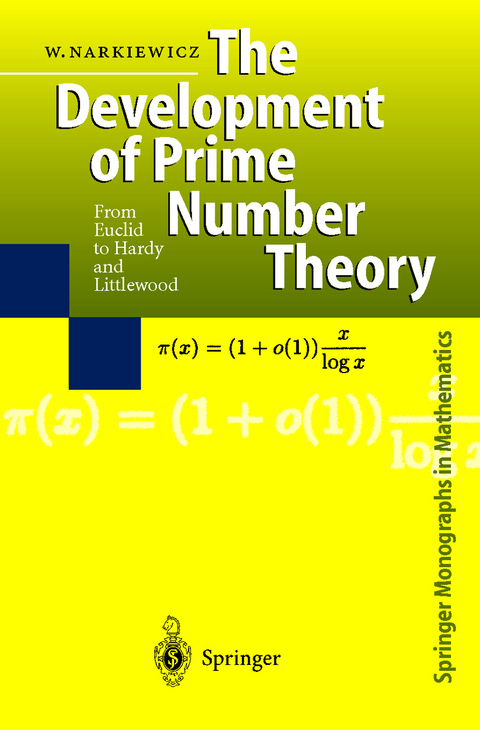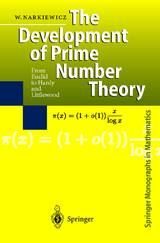The Development of Prime Number Theory
Springer Berlin (Verlag)
978-3-540-66289-1 (ISBN)
1. Early Times.- 2. Dirichlet's Theorem on Primes in Arithmetic Progressions.- 3. ?ebysev's Theorem.- 4. Riemann's Zeta-function and Dirichlet Series.- 5. The Prime Number Theorem.- 6. The Turn of the Century.- References.- Author Index.
"This is a most welcome addition to the literature on prime numbers, zeta and L-functions and arithmetical functions. ... The style is clear, with just the right amount of details. Each chapter closes with carefully chosen Exercises. Novices and experts alike will find that this a book of highest quality, which sets a standard for future works dealing with the history of Mathematics." (A.Ivic, zbMATH 0942.11002, 2021)
“This is a most welcome addition to the literature on prime numbers, zeta and L-functions and arithmetical functions. … The style is clear, with just the right amount of details. Each chapter closes with carefully chosen Exercises. Novices and experts alike will find that this a book of highest quality, which sets a standard for future works dealing with the history of Mathematics.” (A.Ivić, zbMATH 0942.11002, 2021)
| Erscheint lt. Verlag | 14.4.2000 |
|---|---|
| Reihe/Serie | Springer Monographs in Mathematics |
| Zusatzinfo | XII, 449 p. |
| Verlagsort | Berlin |
| Sprache | englisch |
| Maße | 155 x 235 mm |
| Gewicht | 828 g |
| Themenwelt | Mathematik / Informatik ► Mathematik ► Arithmetik / Zahlentheorie |
| Mathematik / Informatik ► Mathematik ► Wahrscheinlichkeit / Kombinatorik | |
| Schlagworte | Complex Analysis • distribution of primes • Number Theory • Prime • Prime number • Prime Numbers • primes in progressionve • Primzahl • Primzahlen • Primzahlenvereteilung • Zahlentheorie |
| ISBN-10 | 3-540-66289-8 / 3540662898 |
| ISBN-13 | 978-3-540-66289-1 / 9783540662891 |
| Zustand | Neuware |
| Informationen gemäß Produktsicherheitsverordnung (GPSR) | |
| Haben Sie eine Frage zum Produkt? |
aus dem Bereich




